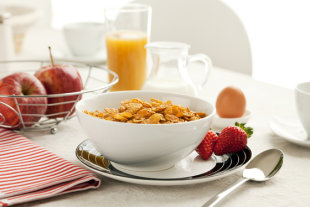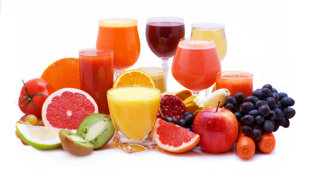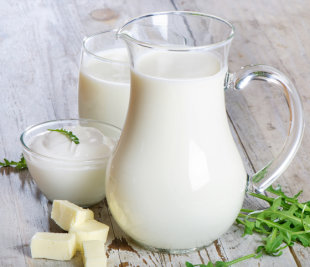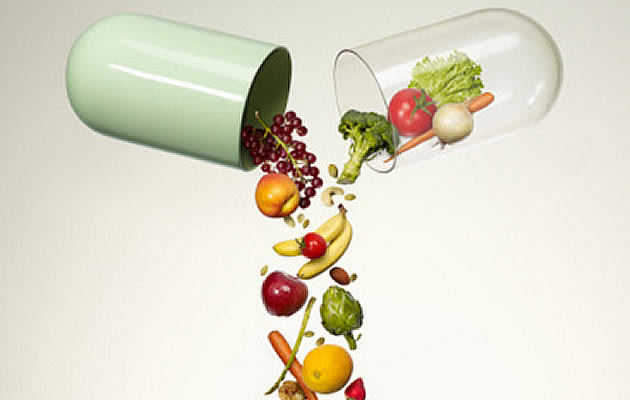Hunger pangs remain the biggest deterrent to our calorie-limiting schedules, making it hard to lose those unwanted pounds. However, if you can eat healthy, non-fattening foods that keep you feeling fuller for a longer time, chances are that you will snack less through the day. Some of the healthier food choices that help to sustain the fuller feeling and prevent hunger pangs have been listed below:
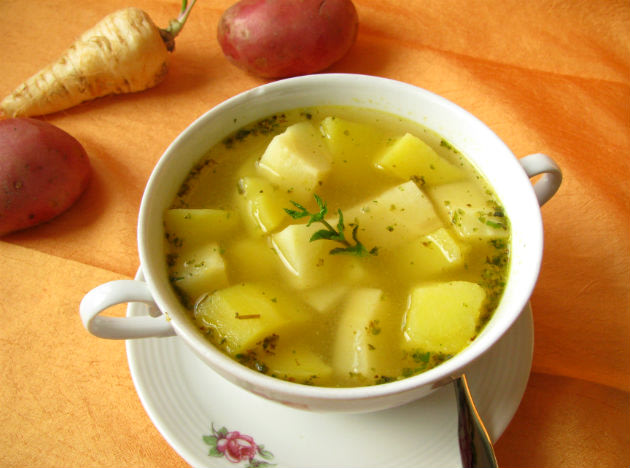
Soups for Midday Meals: Some cultures suggest that soups are appetizers. However, this doesn’t need to be true if you consume more than average amount of soup and that too, the natural variety, consisting of lots of vegetables. Eating or sipping upon soup induces the feeling parallel to having a two-course meal. This helps the brain in perceiving that you are going through a proper meal. Around two bowls of vegetable soup to which some spicy condiments have been added are perfect for keeping you satiated for at least a few hours. The water content of soups ensures that you feel a bit heavy. However, this isn't the kind of heaviness associated with overeating. Fiber-rich soups, like those made from spinach, are particularly good for this cause.
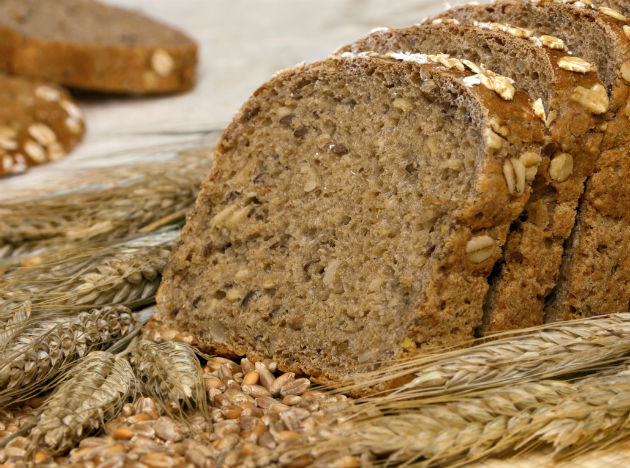
Whole Grains for All Major Meals: Eating whole wheat or multi-grain bread or rotis is recommended since complex carbohydrates release glucose slowly. Slower release of glucose means that sugar levels are kept at a constant. Since there are no spikes or dips in sugar levels, there is lesser chance of being hit by a sugar craving. Further, whole grains are among the best sources of various types of Vitamin B.
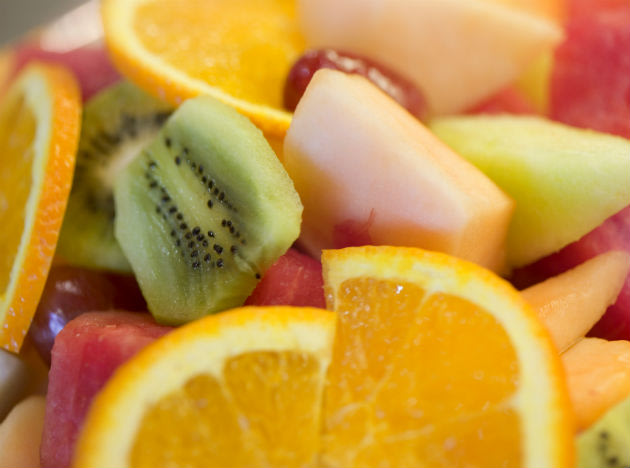
Citrus Fruits: Citrus fruits, like lemon, guavas and grapes, are rich in vitamin C and fiber. While fiber helps to keep the intestines busy for a longer time, the high concentration of vitamin C is used for the body’s fat burning processes. Vitamin C is also required for stimulating formation of critical amino acids like Carnitine. This tends to fasten the body’s metabolism, ensuring that metabolic processes are kept busy, helping to overcome the hunger pangs. The high water content in most citrus fruits induces that typical, feeling of being quenched, which delays feeling hungry, again.
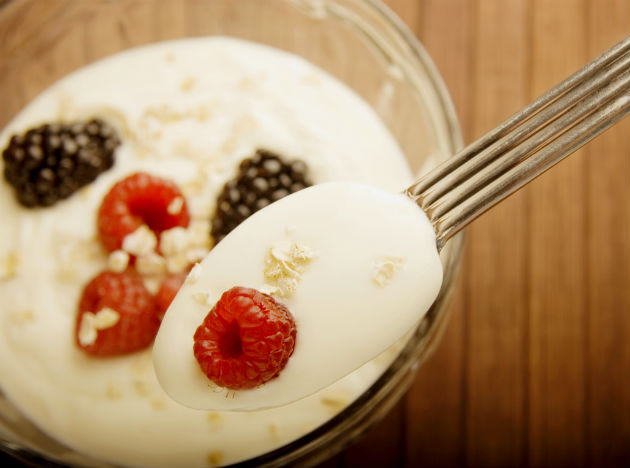
Low-Fat Yogurt Anytime of the Day: Yogurt or the humble Dahi, made from low-fat milk, is the perfect, around-the-clock kind of food. For starters, the low-fat variety too has a certain degree of creaminess to it. This tends to coat your tonsils, inducing the feeling of having eaten something substantial. Yogurt also induces a unique kind of aftertaste that turns-off the temptation to eat something else for some time. Further, yogurt provides the much needed dosage of healthy bacteria for better digestion and calcium for stronger bones.
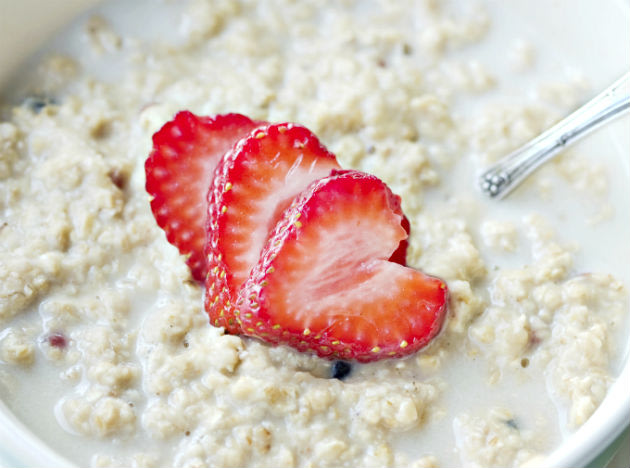
The Anytime Wonder—Oatmeal: Oatmeal is among the most recommended of complex carbohydrate options that helps to keep you fuller without inducing a calorie overload. It can be eaten for breakfast or lunch. It takes the digestive system much longer to break down the complex fiber present within oatmeal. This helps to regulate the insulin levels, keeping you satiated for a longer time. Boiled oatmeal mixed with yogurt is the perfect, low-calorie choice that can keep you fuller for many hours.

Eggs for Breakfast: Eggs are the perfect breakfast time. For starters, eggs are loaded with protein which needs a longer time to get fully digested. Two eggs, when eaten in the boiled or omelet form, comprise a healthy breakfast, of course, along with a few slices of whole grain bread. This combination of protein and complex carbohydrates helps to prevent spikes in blood sugar levels and keeps the digestive system engaged for a longer period, preventing you from feeling hungry soon.
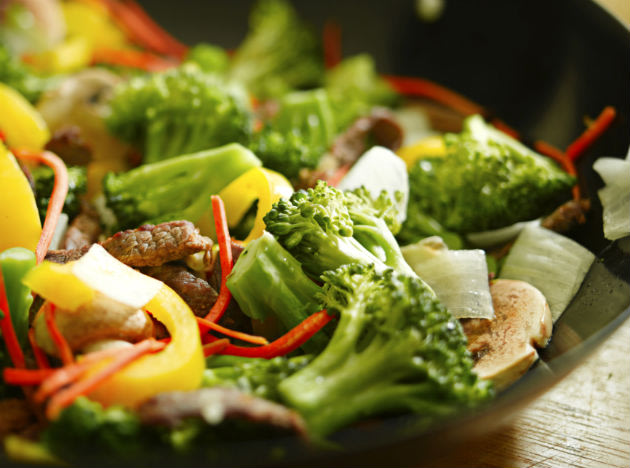
Green Veggies: Some veggies have a very high concentration of soluble and insoluble fiber along with having a thermic effect. This refers to the overall effort exerted by the body in digesting foods. While proteins have a very high thermic effect, veggies like Spinach too have a high thermic value. When the metabolic processes are busy, trying to digest such foods, the tendency to feel hungry is automatically reduced. Further, more calories are burned in digesting such foods, which means they contribute to your weight-management goals! The idea is here to use Food itself as a tool for eating lesser, burning more calories and remaining healthier.
Ref: http://in.lifestyle.yahoo.com/photos/healthy-foods-that-keep-you-full-1334300675-slideshow/

Soups for Midday Meals: Some cultures suggest that soups are appetizers. However, this doesn’t need to be true if you consume more than average amount of soup and that too, the natural variety, consisting of lots of vegetables. Eating or sipping upon soup induces the feeling parallel to having a two-course meal. This helps the brain in perceiving that you are going through a proper meal. Around two bowls of vegetable soup to which some spicy condiments have been added are perfect for keeping you satiated for at least a few hours. The water content of soups ensures that you feel a bit heavy. However, this isn't the kind of heaviness associated with overeating. Fiber-rich soups, like those made from spinach, are particularly good for this cause.

Whole Grains for All Major Meals: Eating whole wheat or multi-grain bread or rotis is recommended since complex carbohydrates release glucose slowly. Slower release of glucose means that sugar levels are kept at a constant. Since there are no spikes or dips in sugar levels, there is lesser chance of being hit by a sugar craving. Further, whole grains are among the best sources of various types of Vitamin B.

Citrus Fruits: Citrus fruits, like lemon, guavas and grapes, are rich in vitamin C and fiber. While fiber helps to keep the intestines busy for a longer time, the high concentration of vitamin C is used for the body’s fat burning processes. Vitamin C is also required for stimulating formation of critical amino acids like Carnitine. This tends to fasten the body’s metabolism, ensuring that metabolic processes are kept busy, helping to overcome the hunger pangs. The high water content in most citrus fruits induces that typical, feeling of being quenched, which delays feeling hungry, again.

Low-Fat Yogurt Anytime of the Day: Yogurt or the humble Dahi, made from low-fat milk, is the perfect, around-the-clock kind of food. For starters, the low-fat variety too has a certain degree of creaminess to it. This tends to coat your tonsils, inducing the feeling of having eaten something substantial. Yogurt also induces a unique kind of aftertaste that turns-off the temptation to eat something else for some time. Further, yogurt provides the much needed dosage of healthy bacteria for better digestion and calcium for stronger bones.

The Anytime Wonder—Oatmeal: Oatmeal is among the most recommended of complex carbohydrate options that helps to keep you fuller without inducing a calorie overload. It can be eaten for breakfast or lunch. It takes the digestive system much longer to break down the complex fiber present within oatmeal. This helps to regulate the insulin levels, keeping you satiated for a longer time. Boiled oatmeal mixed with yogurt is the perfect, low-calorie choice that can keep you fuller for many hours.

Eggs for Breakfast: Eggs are the perfect breakfast time. For starters, eggs are loaded with protein which needs a longer time to get fully digested. Two eggs, when eaten in the boiled or omelet form, comprise a healthy breakfast, of course, along with a few slices of whole grain bread. This combination of protein and complex carbohydrates helps to prevent spikes in blood sugar levels and keeps the digestive system engaged for a longer period, preventing you from feeling hungry soon.

Green Veggies: Some veggies have a very high concentration of soluble and insoluble fiber along with having a thermic effect. This refers to the overall effort exerted by the body in digesting foods. While proteins have a very high thermic effect, veggies like Spinach too have a high thermic value. When the metabolic processes are busy, trying to digest such foods, the tendency to feel hungry is automatically reduced. Further, more calories are burned in digesting such foods, which means they contribute to your weight-management goals! The idea is here to use Food itself as a tool for eating lesser, burning more calories and remaining healthier.
Ref: http://in.lifestyle.yahoo.com/photos/healthy-foods-that-keep-you-full-1334300675-slideshow/

